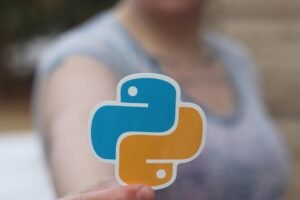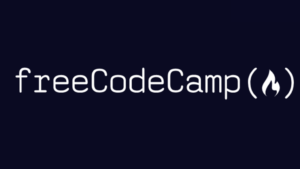Disclosure: When you purchase through links on our site, we may earn an affiliate commission at no extra cost to you. Learn more.
In today’s fast-paced tech landscape, learning to program is one of the most valuable skills you can acquire. Whether you’re looking to advance your career, build innovative projects, or stay ahead of the curve, mastering the right programming language can unlock endless opportunities. But with so many options available, where do you start? This guide simplifies the process by highlighting the best programming languages to learn first—tailored to your goals, ease of learning, and future career prospects.
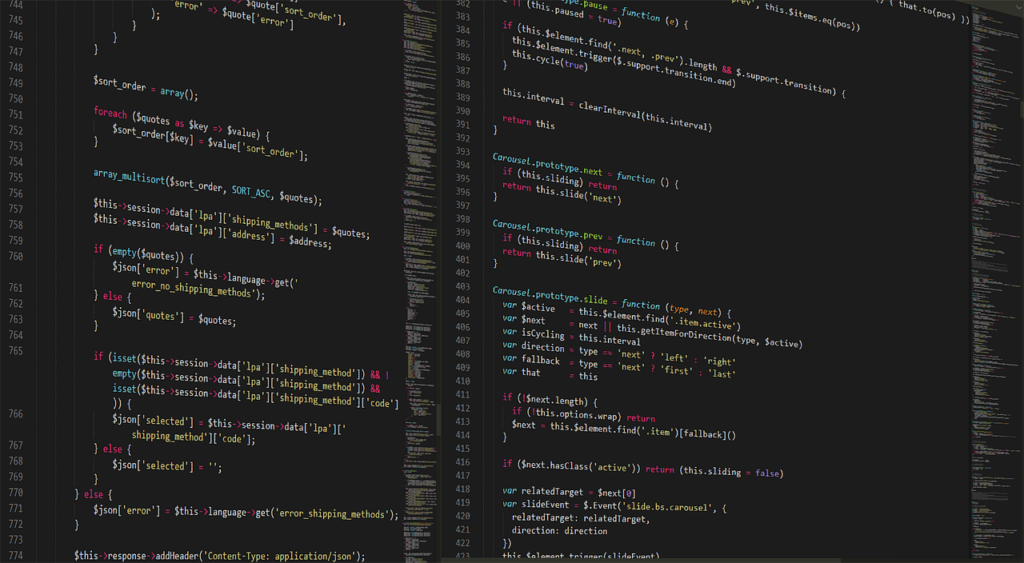
Why Learning a Programming Language Is Crucial
The demand for skilled developers is skyrocketing as technology becomes the backbone of nearly every industry. Whether your goal is to build dynamic websites, create innovative apps, dive into data science, or explore game development, mastering programming is key. The versatility of coding opens doors to countless opportunities, making it one of the most future-proof and adaptable skill sets you can invest in for long-term success.
Moreover, learning the right programming language will set the foundation for your success and make it easier to transition into different areas of technology in the future. Many modern industries, from healthcare to finance, now depend on technology, making developers essential for innovation and growth.
Key Benefits of Learning to Code:
Problem-Solving Skills: Programming teaches you how to approach complex problems methodically and come up with efficient solutions.
Career Flexibility: With coding skills, you can transition between various industries such as tech, finance, media, and entertainment.
High Demand: Skilled programmers are highly sought after, with high earning potential and numerous job opportunities across the globe.
Factors to Consider When Choosing Your First Programming Language
Choosing the best programming language to learn first requires careful consideration of your goals and the current market demand. Here are the key factors to keep in mind:
- What kind of development do you want to focus on? Whether you’re aiming for web development, mobile app creation, or machine learning, the language you choose will directly impact your learning path.
- For example, if you’re interested in building interactive websites, JavaScript is essential. If you’re aiming for data analysis or machine learning, Python will serve you best.
Ease of Learning
Some languages are more beginner-friendly than others. For example, Python is known for its simple and readable syntax, which makes it easier to pick up for those new to programming. More complex languages, like C++ or Java, might take more time to learn but offer more depth and control.
Career Opportunities
- It’s important to choose a language that has a strong presence in the job market. For instance, JavaScript is essential for web development, while Python is heavily used in data science and machine learning.
- Java is widely used in enterprise systems and mobile app development, making it a solid choice if you want long-term job stability.
Community Support
- Having access to an active and supportive community can make learning easier. Larger programming languages tend to have abundant resources, including forums, tutorials, and open-source libraries, which can be beneficial for beginners.
- Languages like Python, JavaScript, and Java have huge online communities where you can ask questions, find tutorials, and access libraries that make coding easier.
Industry Applications
Different programming languages excel in different domains. For example:
- Python: Best for data science, AI, automation, and web development.
- JavaScript: Dominant in front-end and full-stack web development.
- Java: Popular for mobile apps, large-scale systems, and Android development.
- C#: Great for game development (with Unity) and enterprise software.
- SQL: Essential for working with databases and data management.

The 6 Best Programming Languages to Learn First in 2024
Below are the top programming languages that are perfect for beginners in 2024. Each has unique strengths, and the best choice depends on your interests and goals.
1. Python

Python is often regarded as one of the best programming languages to learn first, thanks to its clean, easy-to-read syntax and versatility. It’s a favorite among beginners and professionals alike, finding use in a wide range of fields, including web development, data science, artificial intelligence, and automation. Its extensive libraries and frameworks make Python a go-to language for building both simple and complex applications.
Pros: Beginner-friendly syntax, incredibly versatile, huge community support with countless resources.
Cons: Slower performance compared to faster, compiled languages like C++.
2. JavaScript
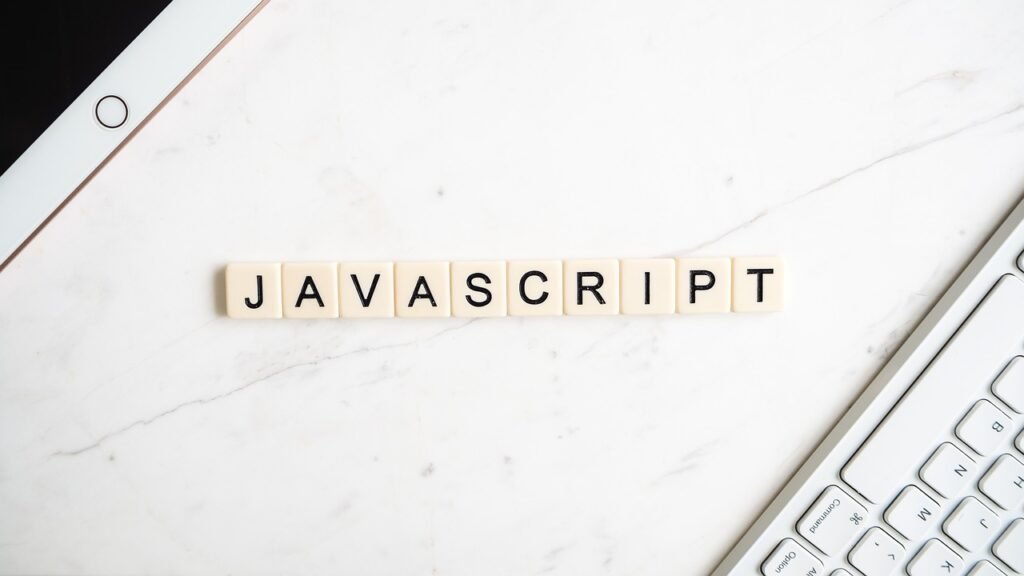
JavaScript is indispensable for anyone pursuing web development. As the only language that runs natively in browsers, it’s the backbone of front-end development, enabling dynamic and interactive websites. Beyond the browser, JavaScript has expanded into backend development with the rise of Node.js, making it a full-stack powerhouse. Its extensive ecosystem of libraries and frameworks, like React and Vue.js, further solidifies its place as a must-learn language for modern developers.
Pros: Essential for web development, runs in browsers, vast ecosystem with numerous libraries and frameworks.
Cons: Asynchronous programming can be challenging for beginners to grasp.
3. Java

Java has been a cornerstone of programming for decades, renowned for its reliability and scalability. It’s widely used in building large-scale enterprise systems, financial platforms, and Android applications. One of Java’s greatest strengths is its portability—”write once, run anywhere”—allowing developers to create cross-platform applications with ease. Its robust performance and vast ecosystem make it a go-to language for businesses and mobile app developers alike.
Pros: Highly versatile, platform-independent, extensively used in enterprise and Android app development.
Cons: Verbose syntax, steeper learning curve for beginners compared to simpler languages like Python.
4. C#

C# is a popular choice for game development, particularly with Unity, one of the leading game engines in the industry. It’s also extensively used for building Windows desktop applications, thanks to its deep integration with Microsoft technologies. Recently, C# has been gaining ground in web development with the .NET framework, making it a versatile language across different platforms. Its strong support from Microsoft and robust performance make it an attractive option for developers focusing on gaming, enterprise software, or web applications.
Pros: Excellent for game development with Unity, strong Microsoft backing, versatile across gaming, desktop, and web development.
Cons: Steeper learning curve and less beginner-friendly compared to languages like Python or JavaScript.
5. Ruby

Ruby, especially when paired with the Ruby on Rails framework, is renowned for its simplicity and productivity. It’s a highly beginner-friendly language, making it a favorite among newcomers and startups alike. Ruby on Rails allows developers to quickly build functional, scalable web applications, which is why it’s so popular in the startup ecosystem. Its clean, readable syntax emphasizes ease of use, enabling developers to prototype and launch projects rapidly.
Pros: Simple syntax, highly productive, great for rapid prototyping, widely used in startups.
Cons: Less versatile and not as widely adopted as Python or JavaScript, limiting its use beyond web development..
6. SQL (Structured Query Language)
SQL is not a general-purpose programming language like the others listed, but it is essential for working with databases. As businesses become increasingly data-driven, SQL has become a critical skill for anyone involved in data analysis, business intelligence, or database administration. SQL is used to query, manage, and manipulate data in relational databases, making it an invaluable tool for backend developers and data scientists.
- Pros: Vital for data management, easy to learn, widely used across industries
- Cons: Limited to database-related tasks, not a full-fledged programming language.
How to Choose the Best Programming Language Based on Career Goals
Your career aspirations should heavily influence your decision when selecting the best programming languages to learn first. Here’s a breakdown based on specific career paths:

Web Development
Recommended Languages: JavaScript, Python, Ruby.
For anyone interested in front-end web development, JavaScript is essential. Python and Ruby are great options for back-end development, offering powerful frameworks to build websites quickly and efficiently.
Mobile App Development
Recommended Languages: Java, Swift, Kotlin.
If you want to develop mobile apps, Java is key for Android development, while Swift is the go-to language for iOS development. Kotlin is also an excellent choice for modern Android development.
Game Development
Recommended Languages: C#, C++.
C# is widely used in game development with Unity, while C++ is ideal for high-performance game engines like Unreal Engine.
Data Science and Machine Learning
Recommended Languages: Python, R.
Python is the top choice for data science and machine learning, thanks to its extensive libraries such as NumPy, pandas, and TensorFlow. R is another great language for statistical analysis and data visualization.
Best Resources for Learning Programming in 2024

Learning programming requires dedication, and thankfully there are many resources available to help you along the way. Here are some of the best options for beginners:
Free Learning Platforms
- Best Resources for Learning Programming in 2024
- Learning programming requires dedication, and thankfully there are many resources available to help you along the way. Here are some of the best options for beginners:
- Free Learning Platforms
- Codecademy
- freeCodeCamp
- W3Schools
- For a comprehensive list of the best websites to learn coding for free, check out this guide on the best websites to learn coding for free.
Coding Practice Platforms
- LeetCode
- Codewars
- HackerRank
Books and Tutorials
There are many great programming books and tutorials that provide step-by-step instructions for beginners. These resources can help solidify your understanding of programming concepts and offer guidance on specific projects.
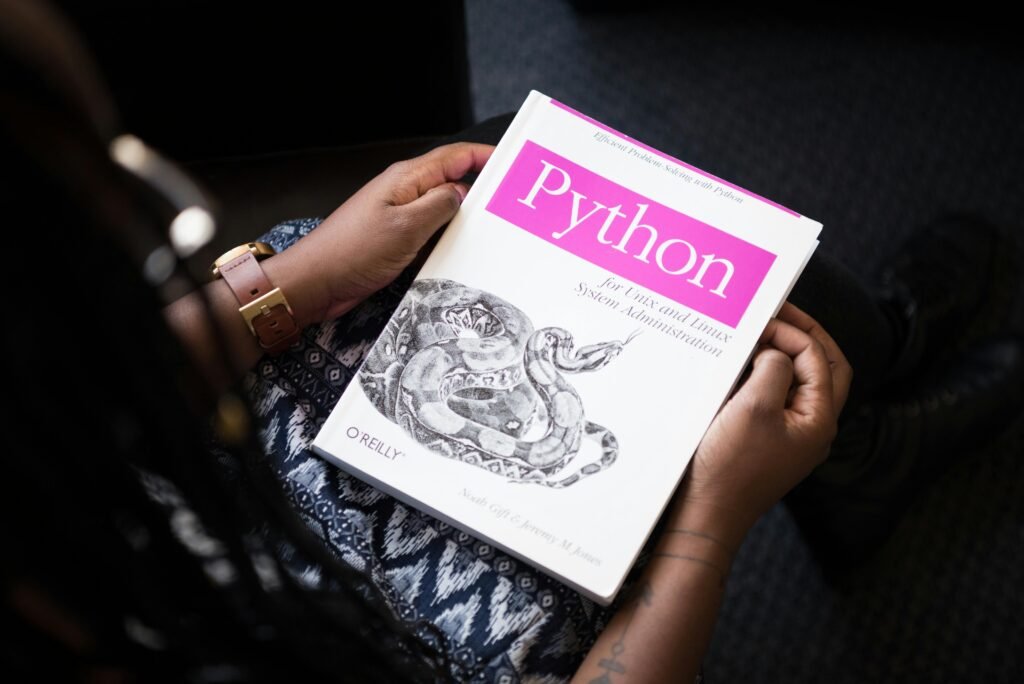
Importance of Building Projects
Start building simple projects early on. Whether it’s a basic website or a small script, practical experience is crucial to solidifying your skills and gaining confidence as a programmer.
Common Challenges Beginners Face and How to Overcome Them
Learning to code can be challenging, but knowing how to approach common obstacles can make a big difference. Here are a few tips to help:
Learning Too Many Languages at Once
It’s easy to get excited and try to learn multiple languages simultaneously. Focus on mastering one programming language before moving on to the next. This will help you build a solid foundation.
Not Understanding the Basics
Don’t skip over foundational concepts such as algorithms, data structures, and basic logic. These are essential skills that will serve you across all programming languages.
Starting Projects Too Late
Many beginners wait until they feel confident to start their own projects. The best way to learn is by doing—start small and build up from there.
Programming Communities for Beginners
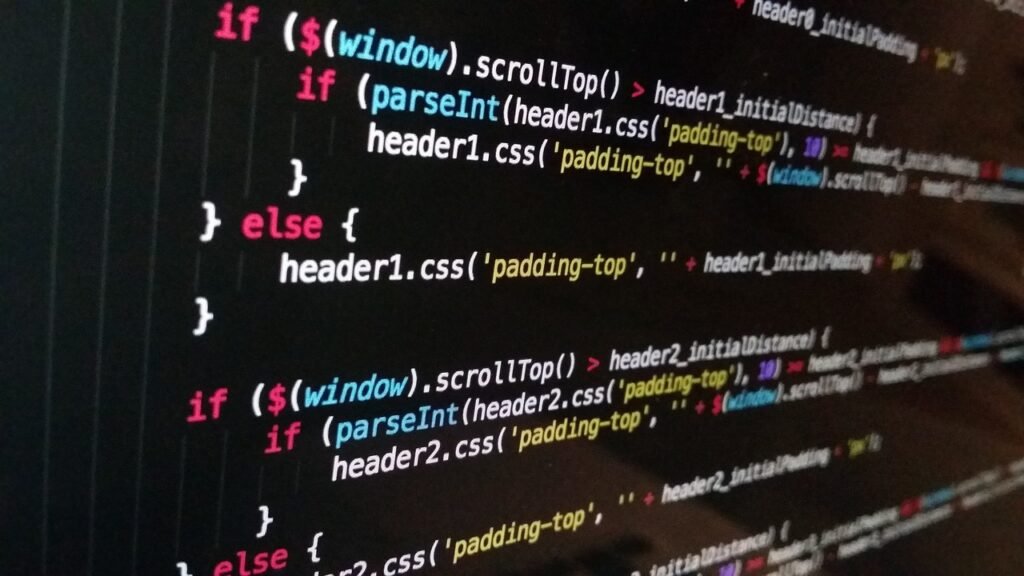
Joining a programming community is a great way to stay motivated and get help when you need it. Here are some communities worth joining:
- Stack Overflow
- Reddit’s programming subreddits
- GitHub
Engage in online coding challenges, hackathons, and forums to improve your skills and get feedback on your work.
Staying Motivated While Learning Programming
Programming is a marathon, not a sprint. Staying motivated is key to long-term success. Here are some tips to keep you going:
- Set small, achievable goals and celebrate when you reach them.
- Take regular breaks to avoid burnout.
- Join study groups or online communities for accountability and support.
Choosing the Right Tools and IDEs for Beginners
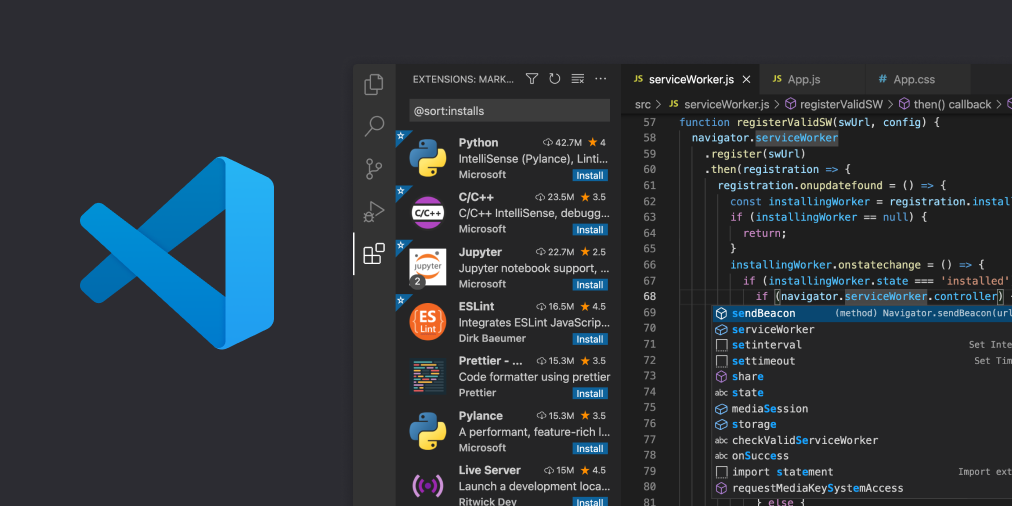
The right tools can make learning to code much easier. Here are some beginner-friendly integrated development environments (IDEs) that are widely used:
- Visual Studio Code
- PyCharm (for Python)
- Sublime Text
These tools offer features like syntax highlighting and debugging that simplify the coding process for beginners.
Programming Bootcamps vs. Self-Learning: What’s Best for You?

There are two main paths for learning to code: structured bootcamps or self-paced learning. Here’s a comparison of the two:
Bootcamps
Bootcamps offer a fast, immersive experience designed to get you job-ready in a short time. They are often intensive and focused on preparing you for a specific career path.
Self-Learning
Self-learning allows you to move at your own pace, using a combination of free resources, books, and online tutorials. It requires more discipline but offers flexibility and customization in what you learn.
What’s Next After Learning Your First Programming Language?
After you’ve gained a solid understanding of your first programming language, the next step is to deepen your skills by learning frameworks and libraries. For example, if you’ve learned JavaScript, you might want to explore frameworks like React or Vue.
You can also start exploring advanced topics like algorithms, data structures, and design patterns to strengthen your problem-solving skills. If you’re aiming for a career in development, consider learning a second language that complements your first one, such as learning JavaScript after mastering Python.

Conclusion
Choosing the best programming languages to learn first depends on your personal goals, your interests, and the career opportunities you wish to pursue. Python, JavaScript, Java, C#, and Ruby are all excellent choices, each offering unique advantages for different types of development.
As a beginner, start with the language that best aligns with your career goals, and remember that consistency and practice are key to success. With the right resources and motivation, you’ll be well on your way to becoming a skilled programmer.



